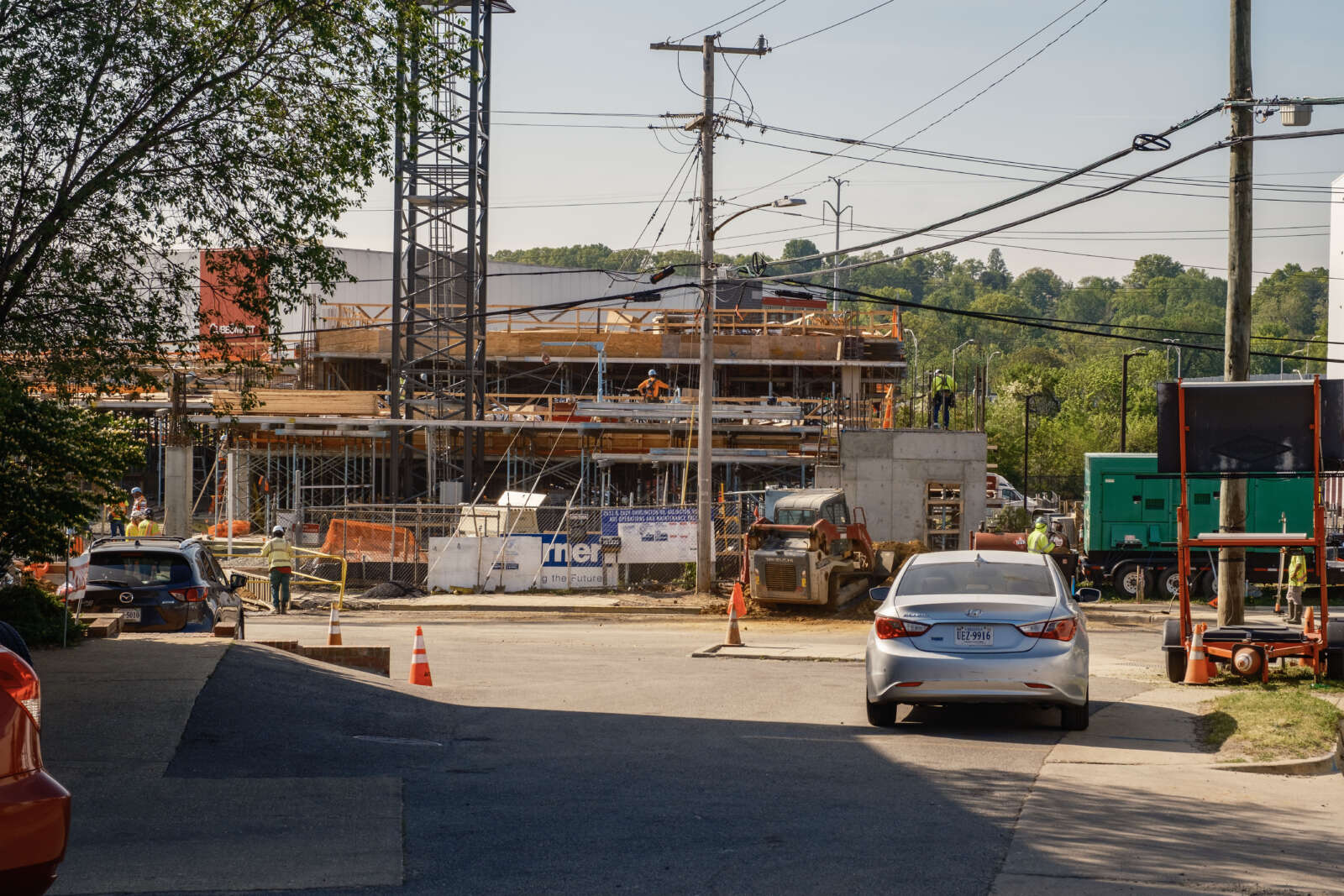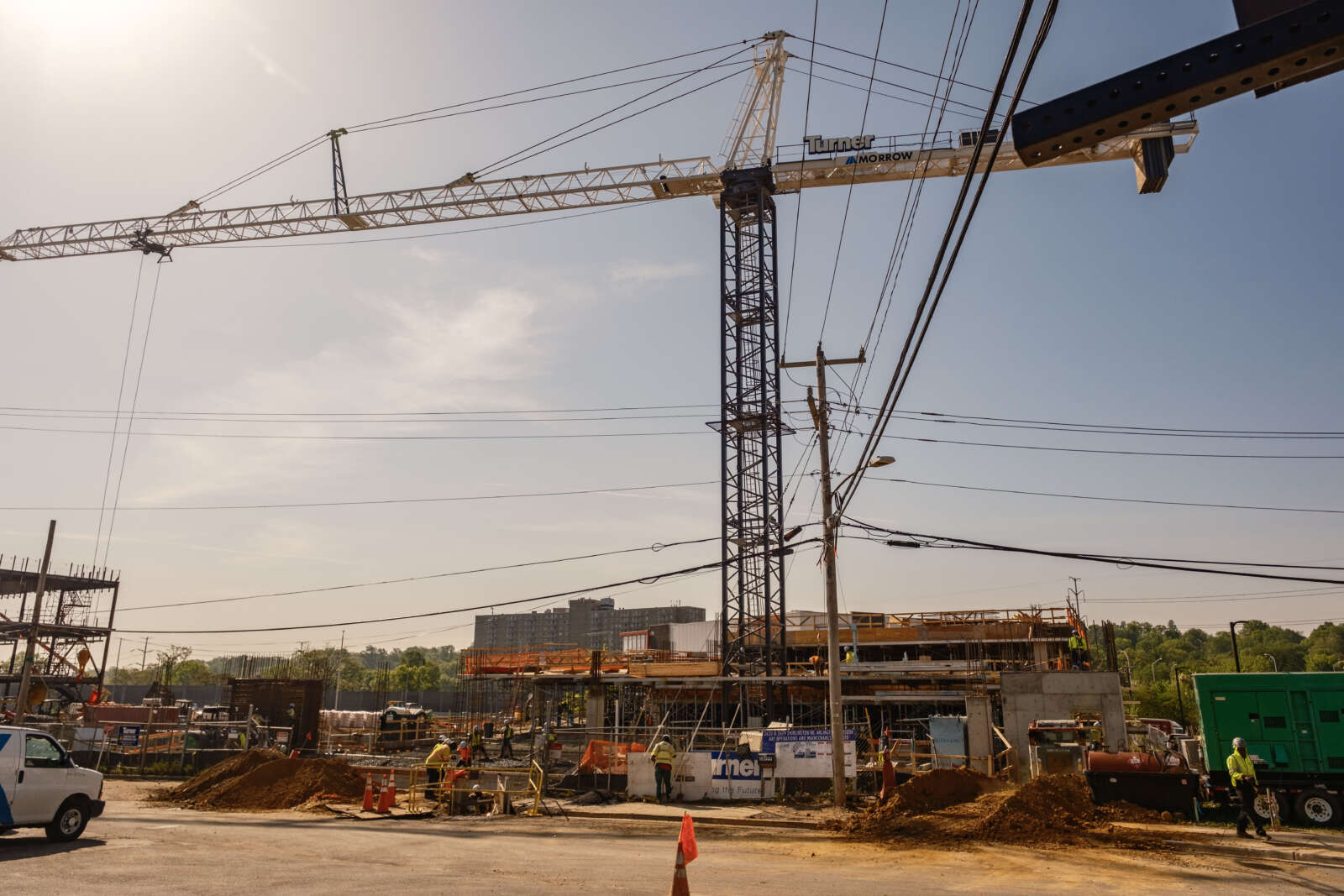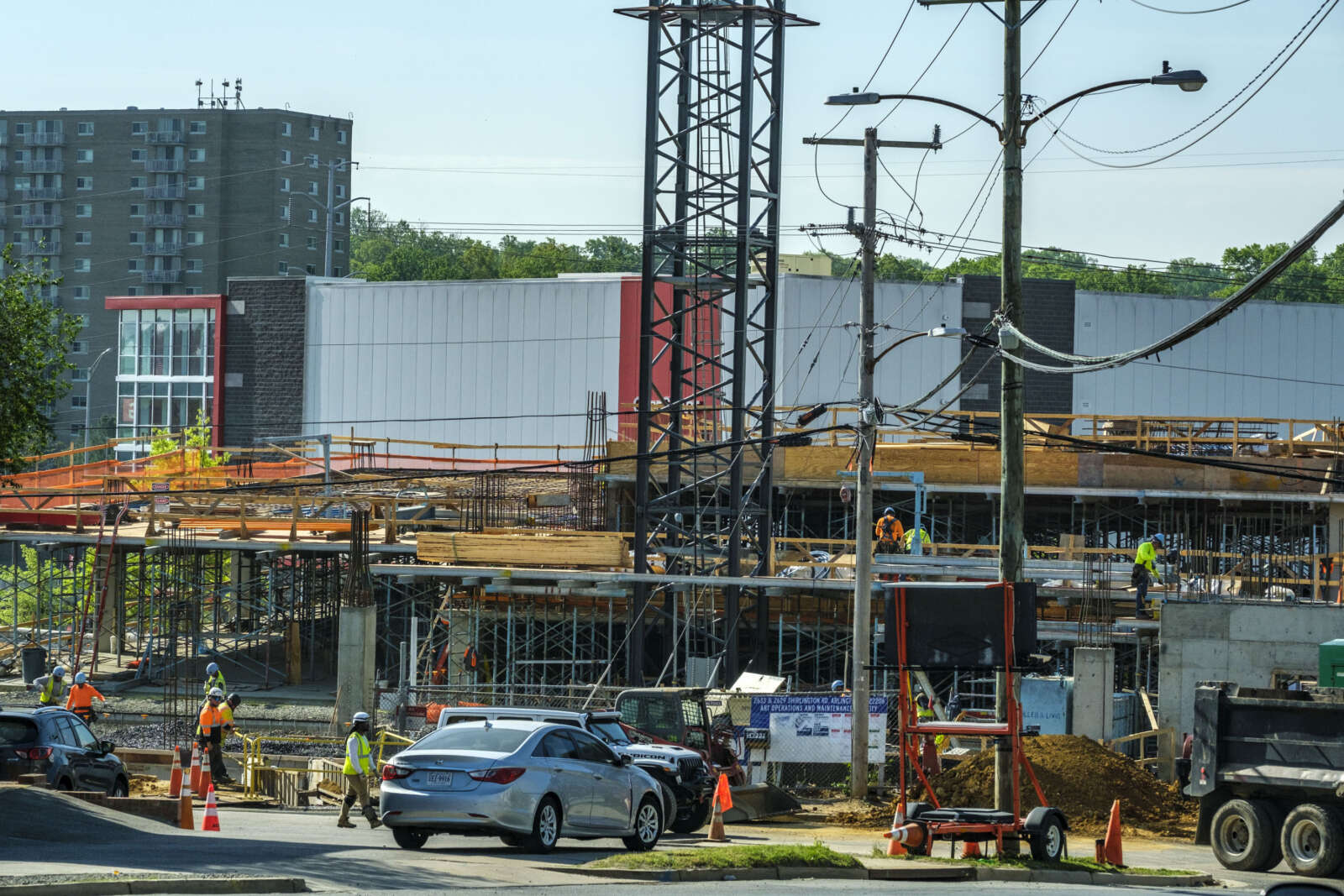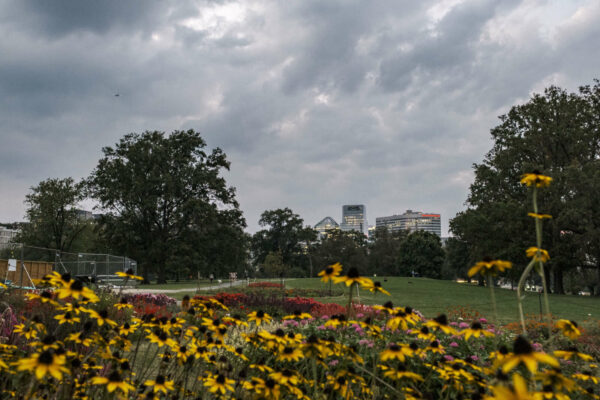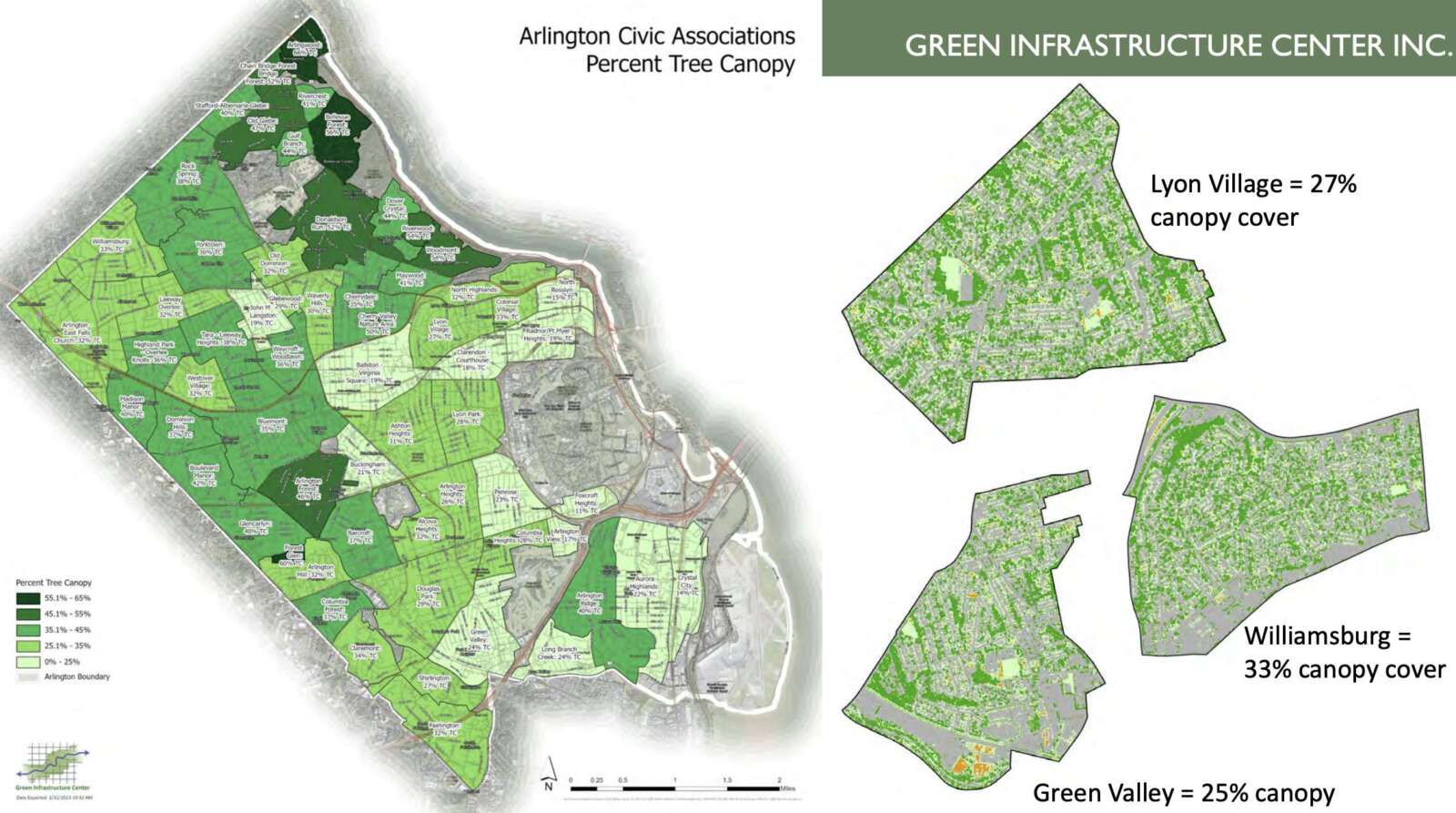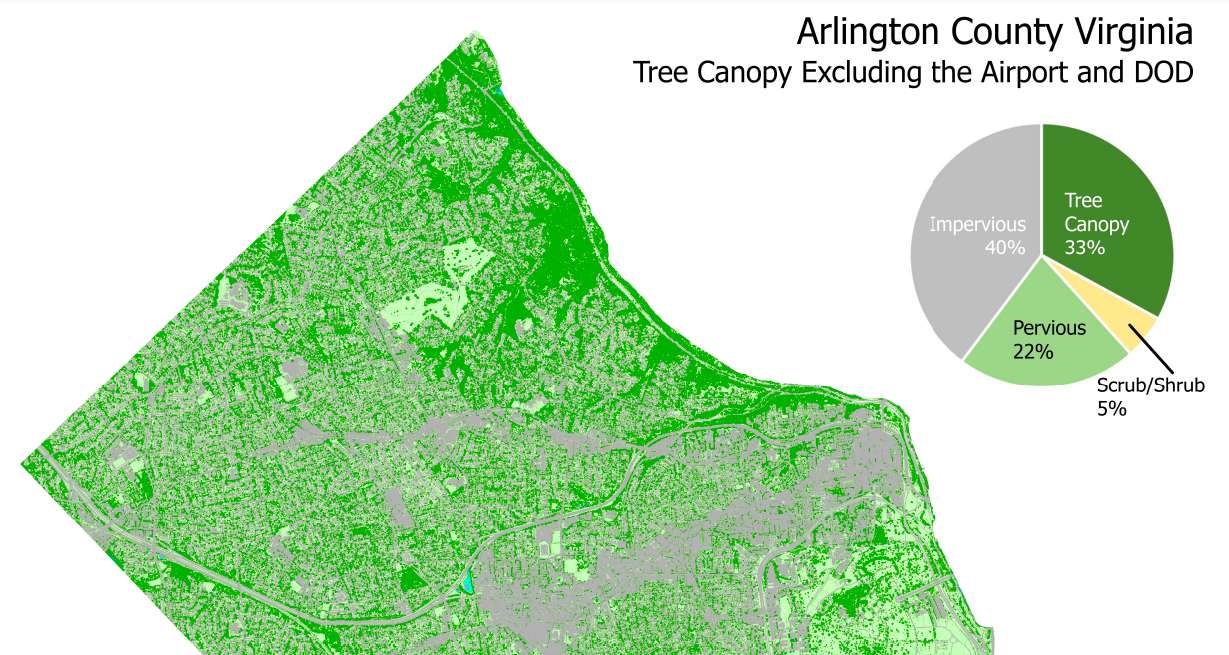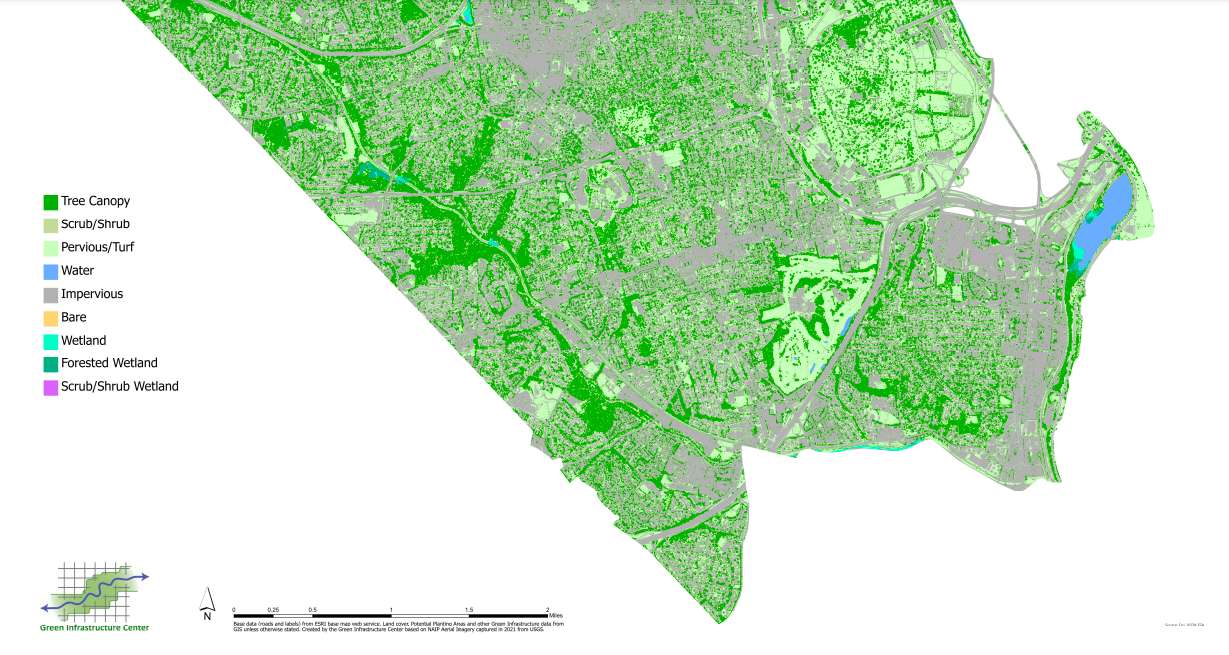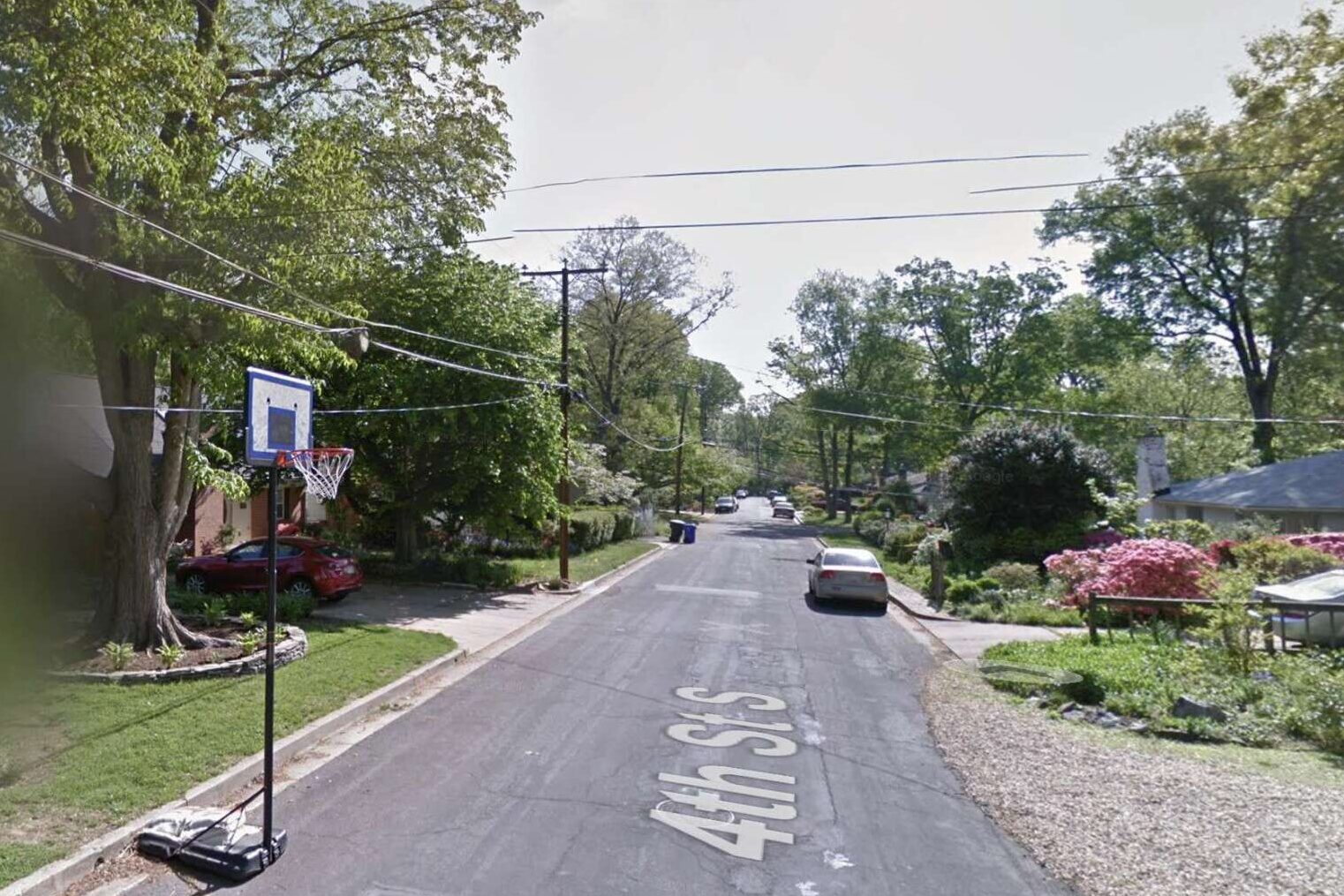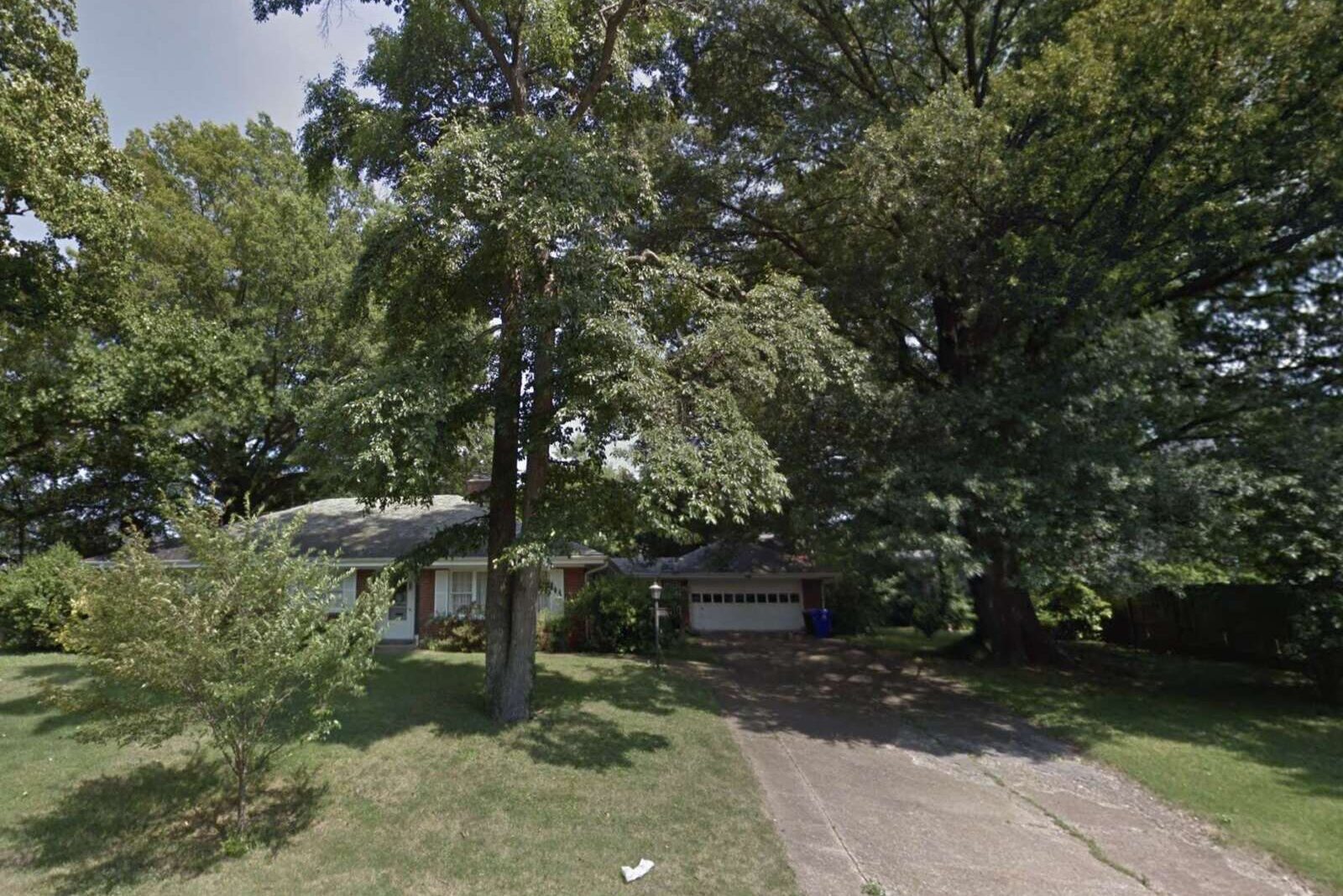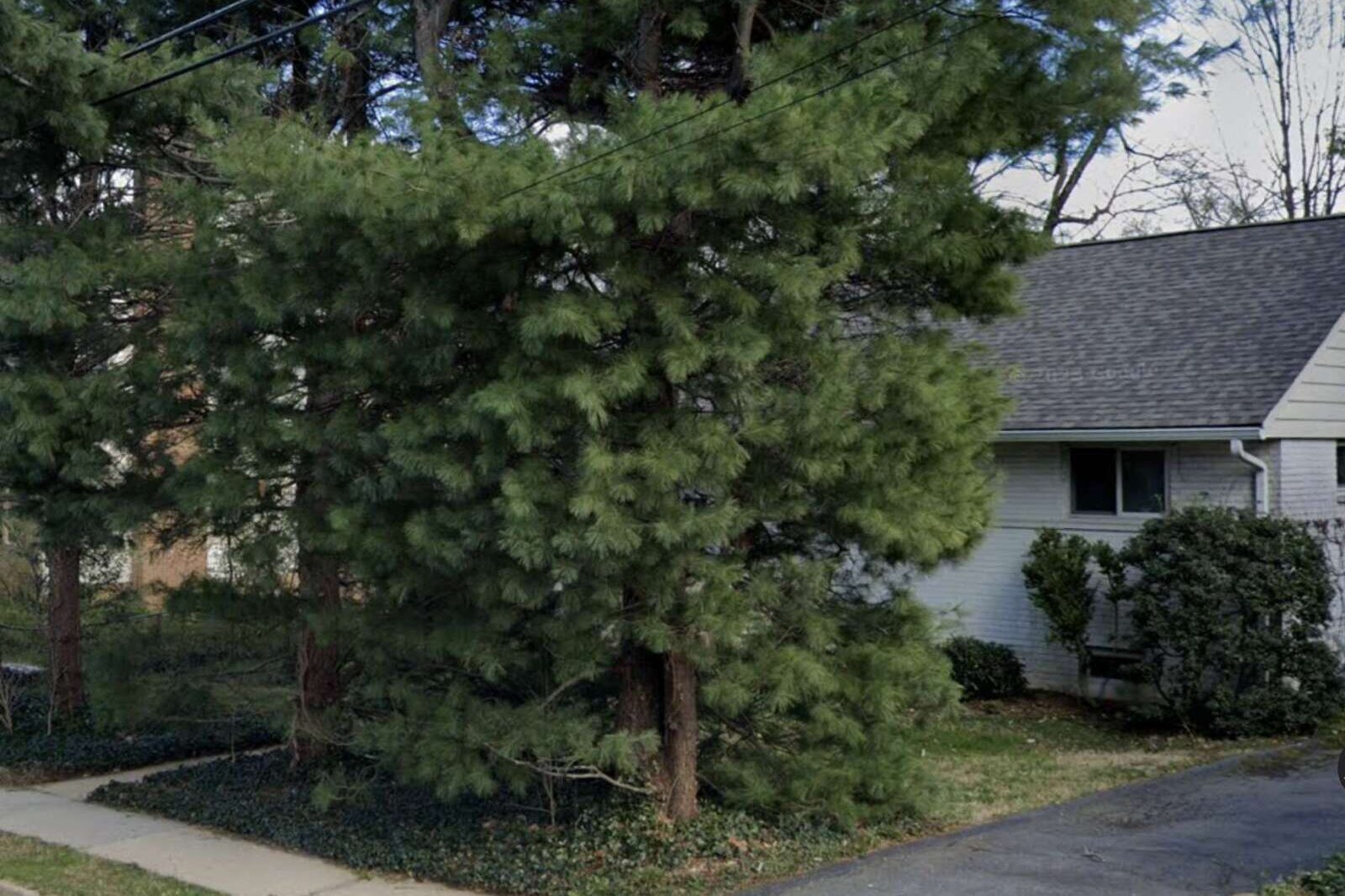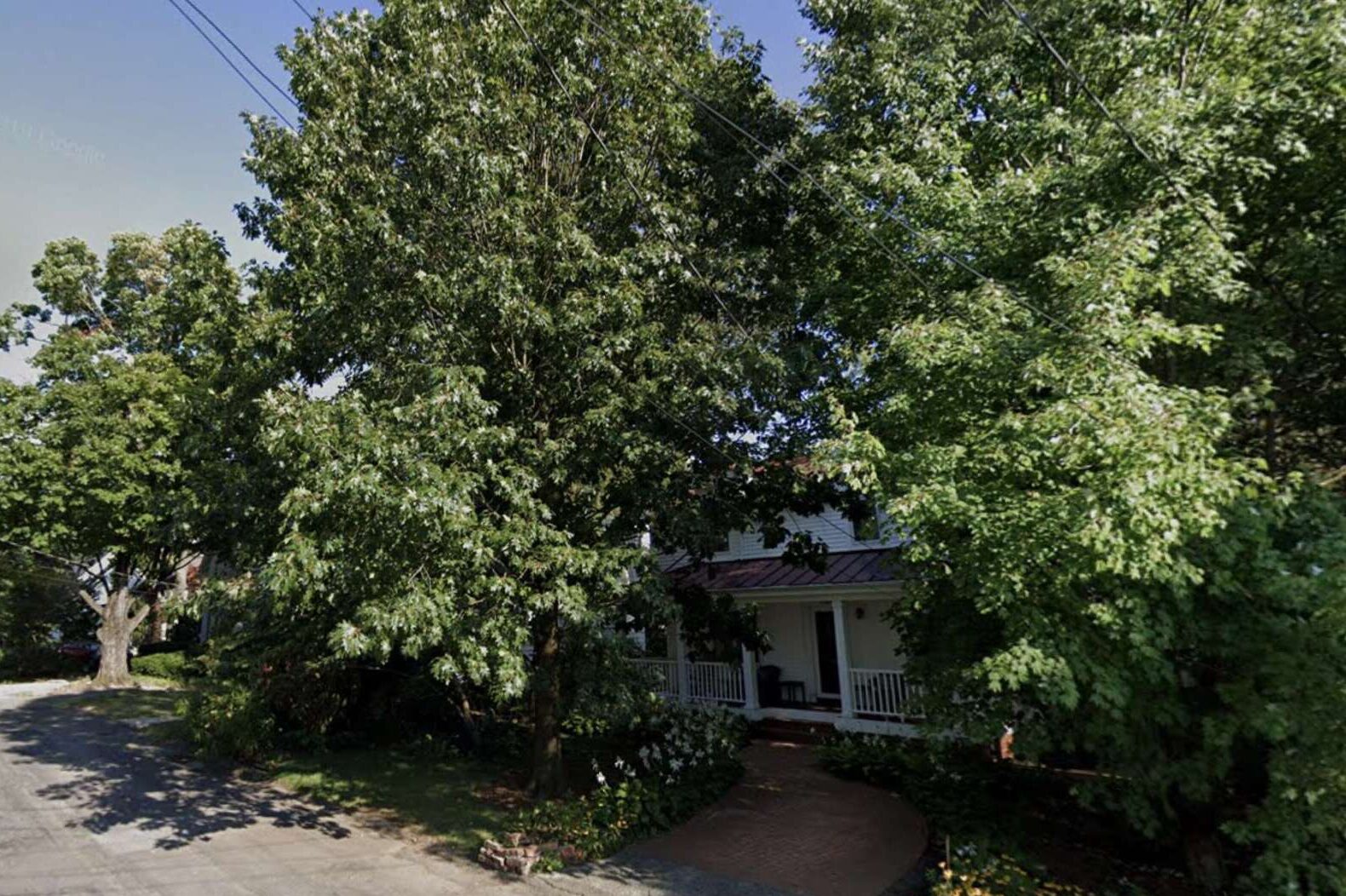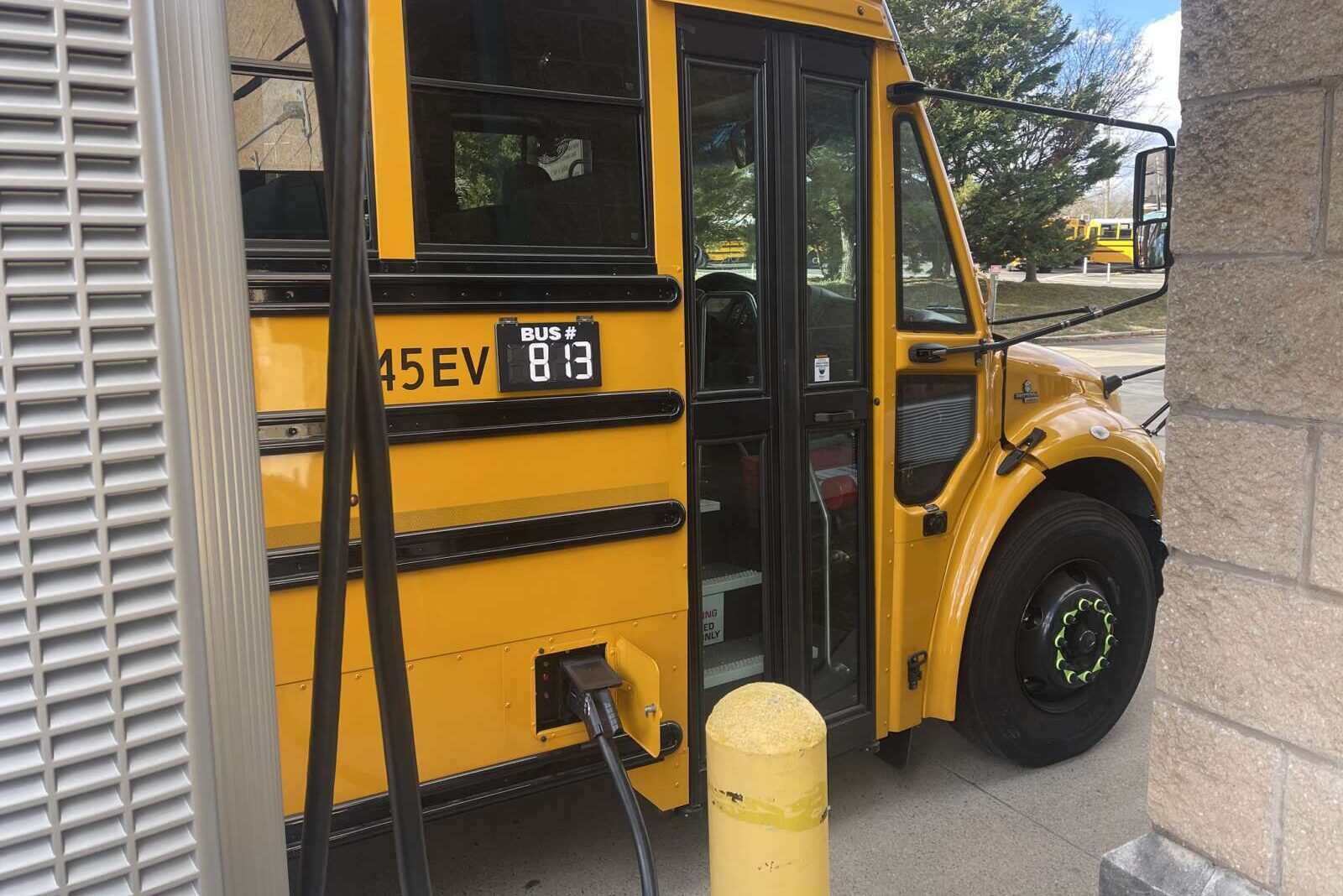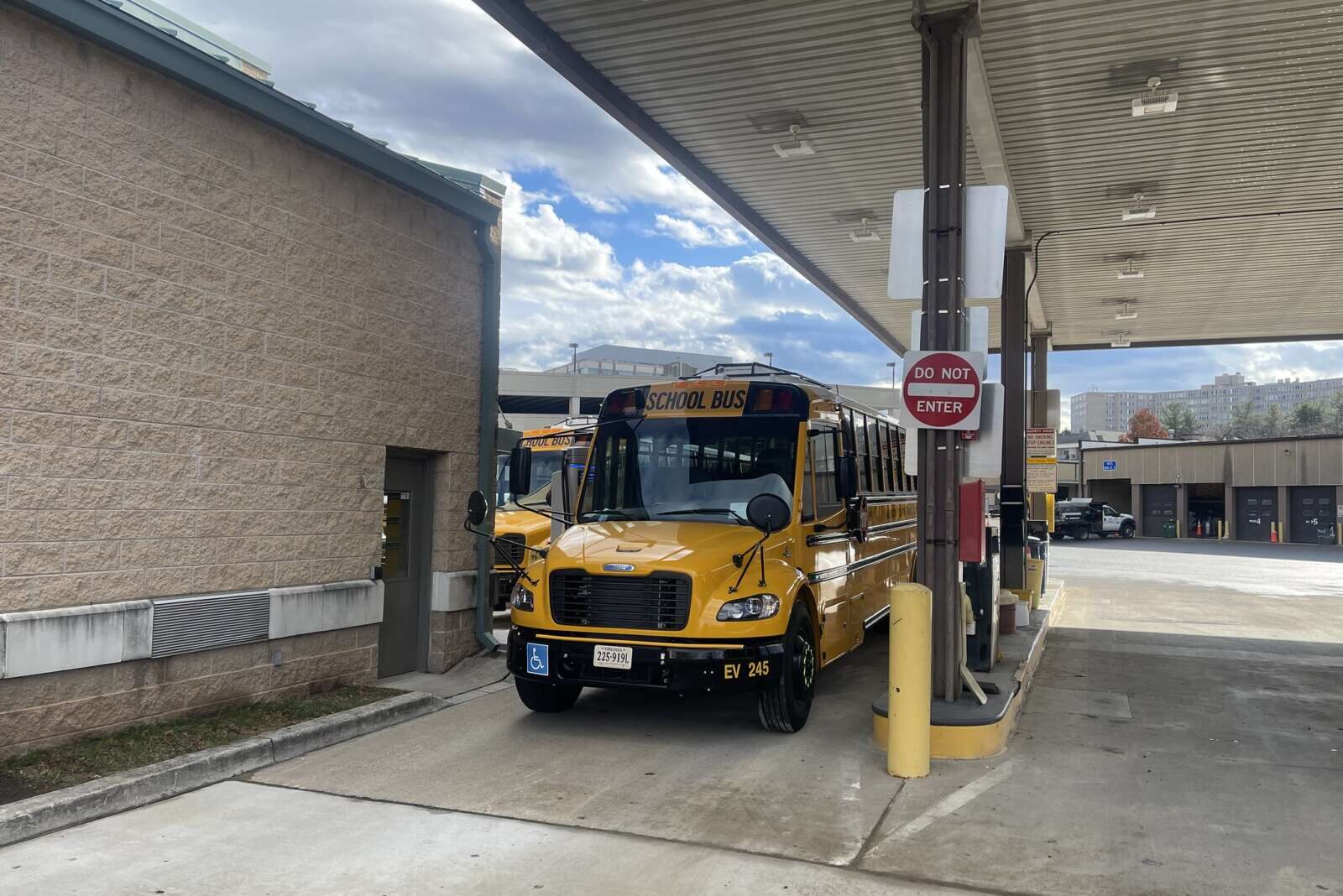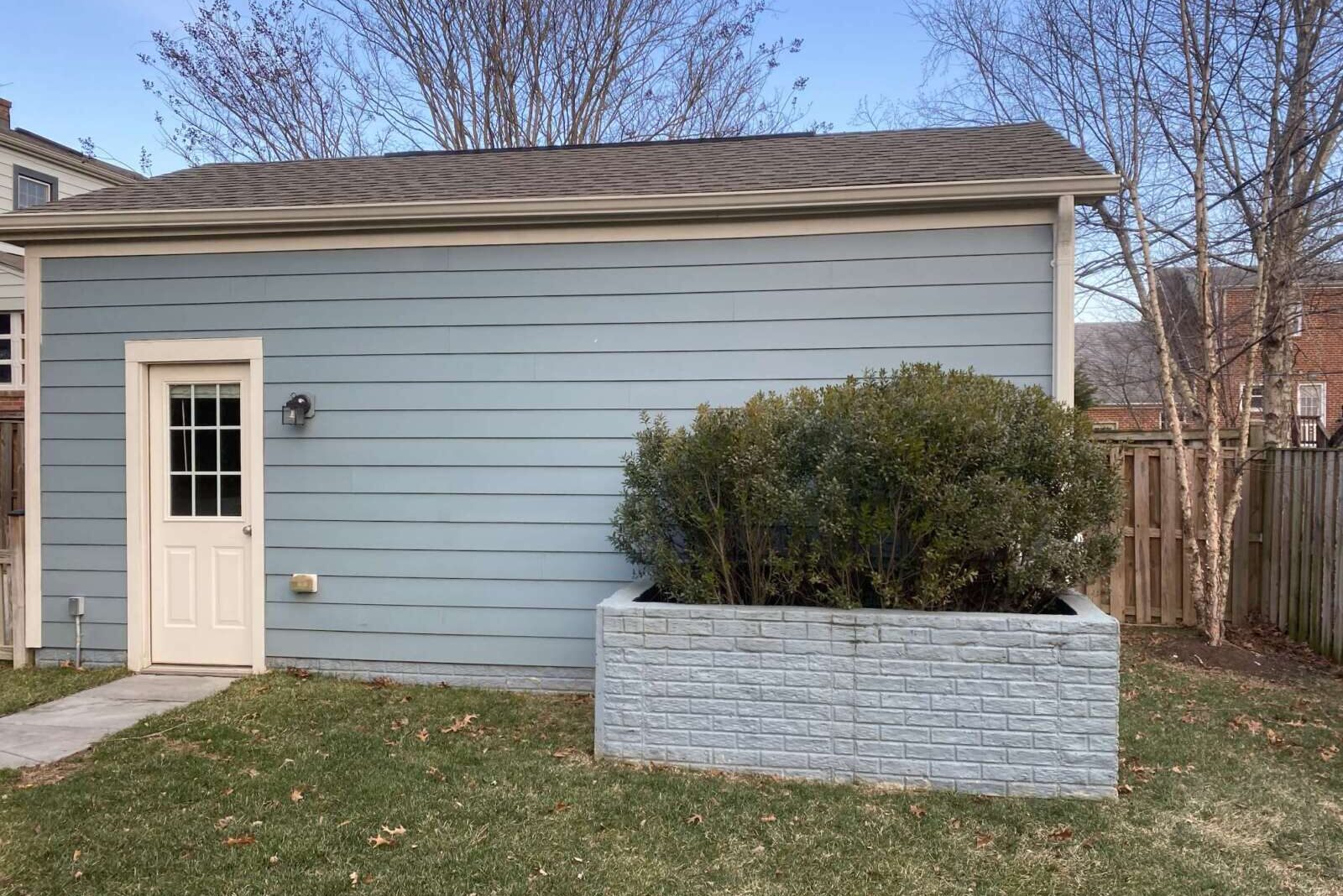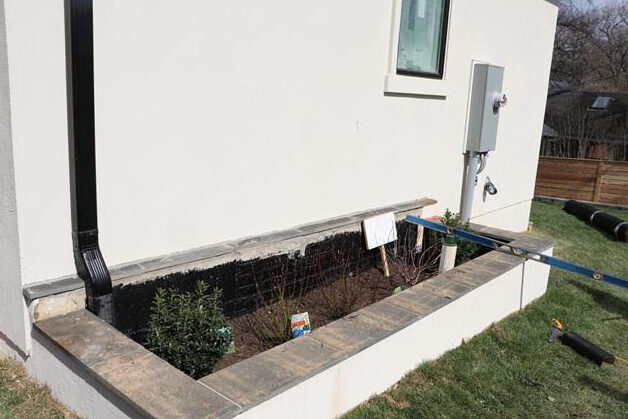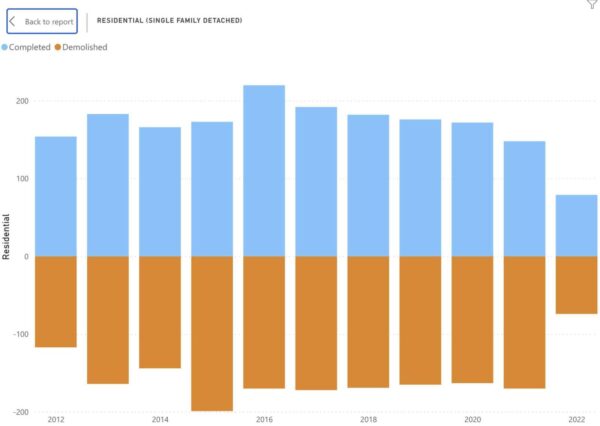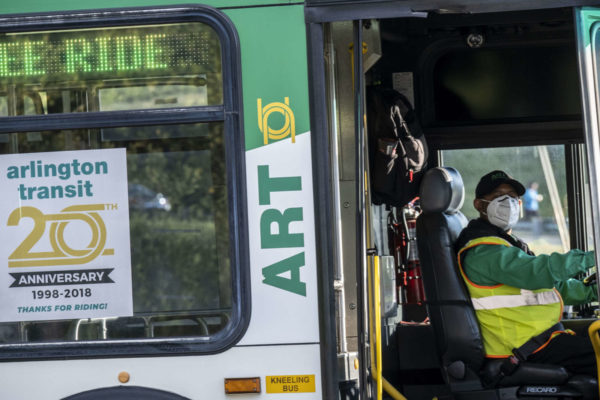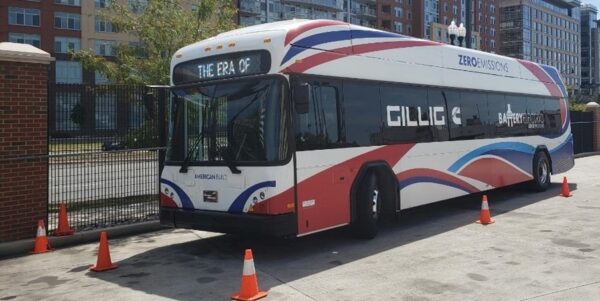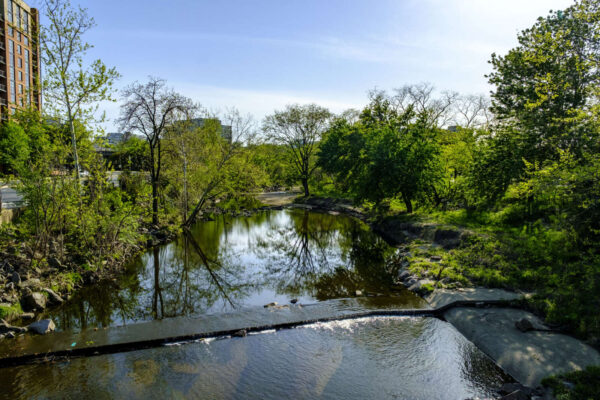As work continues on a new Arlington Transit bus facility in Green Valley, Arlington is taking steps to make it work for electric buses.
Electrifying buses is part of the county’s goal to reach carbon neutrality by 2050. To reach that goal, it needs to buy battery-powered electric buses and have a place to charge them.
Construction is currently set to wrap up next fall on a new ART Operations and Maintenance Facility at 2629 Shirlington Road and the county aims to have electric buses on-site by 2025. Meanwhile, Arlington is testing out different buses to see which to add to its fleet, piloting buses from two providers last year and possibly testing some from up to two more manufacturers.
With work progressing on both these fronts in tandem, plans for the facility moved forward with partially baked designs for charging infrastructure. This has set the county up to need to amend its design and construction contracts associated with the $96.6 million project as it learns more about what it needs to build.
This weekend, the Arlington County Board is set to tack on almost $585,000 to an existing $4.5 million design contract with Stantec Architecture to fully flesh plans to add up to 46 charging stalls that can accommodate up to 63 buses.
“As [Battery Electric Bus] concept plans were developed, the County proceeded with the 60% design for BEB charging infrastructure,” Dept. of Environmental Services spokeswoman Alyson Jordan Tomaszewski said. “The design scope expanded as the 60% design progressed and as more details about the County BEB requirements were identified.”
Once these designs are 100% complete, the county will update its construction contract with Turner Construction, authorizing it to purchase and install the charging equipment needed for the initial BEB pilot program, per a county report.
“The 100% design will provide capacity to add additional charging cabinets and equipment when additional BEBs are purchased,” it says.
Right now, something of a placeholder contract says the contractor has up to nearly $11.9 million to spend on above-grade charging equipment.
“This includes the necessary switchgear, transformers, chargers, and associated equipment to charge an initial increment of electric buses,” per a 2022 report. “It also includes canopies and solar panel over the canopies.”
That sum is on top of the $66.4 million contract to build the facility and below-grade charging infrastructure. These plans were approved with the expectation that the county would be buying electric buses sometime this spring.
While operating electric buses from the facility seems to have long been the plan, some neighbors had advocated for more fully baked plans for charging capabilities when the project was being developed.
Instead, designs stayed vague “to accommodate future fleet electrification” but be flexible enough to incorporate future technology, per a 2021 community presentation.
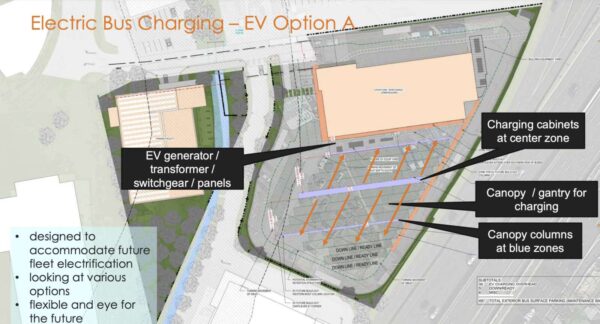
Construction on the facility continues apace and the county is still targeting a fall 2024 completion, Tomaszewski said.
“The erection of the steel structure on the Operations and Maintenance building was completed on March 17,” per the website. “In the next few weeks, crews will work on completing detailing of the steel, placing the metal deck, and completing the roof screening wall.”
Construction started last year, with a groundbreaking in June.
Buses are temporarily being stored on a property across the street from Washington-Liberty HIgh School, near a collection of homes. The county and some residents are embroiled in a lawsuit about whether the operations have impacted their quality of life.


